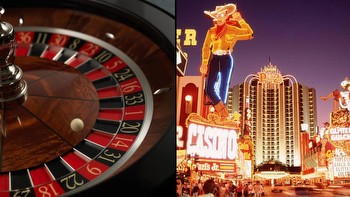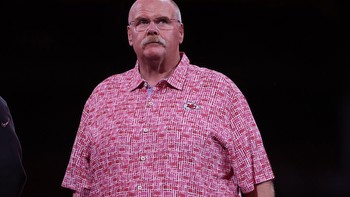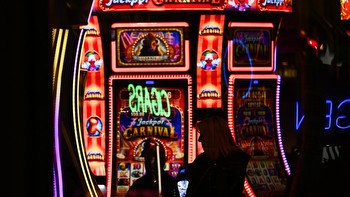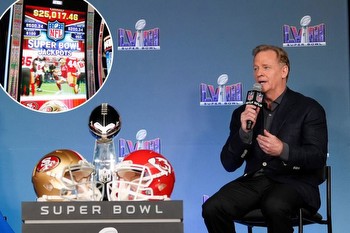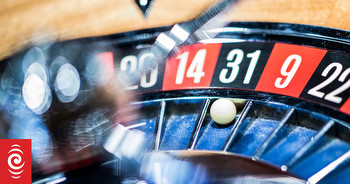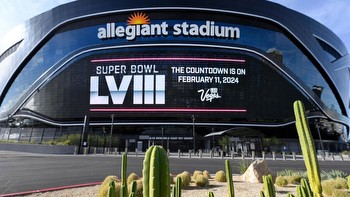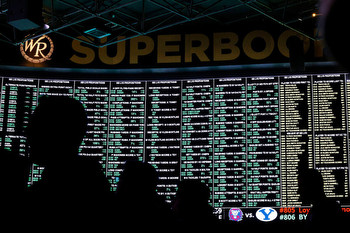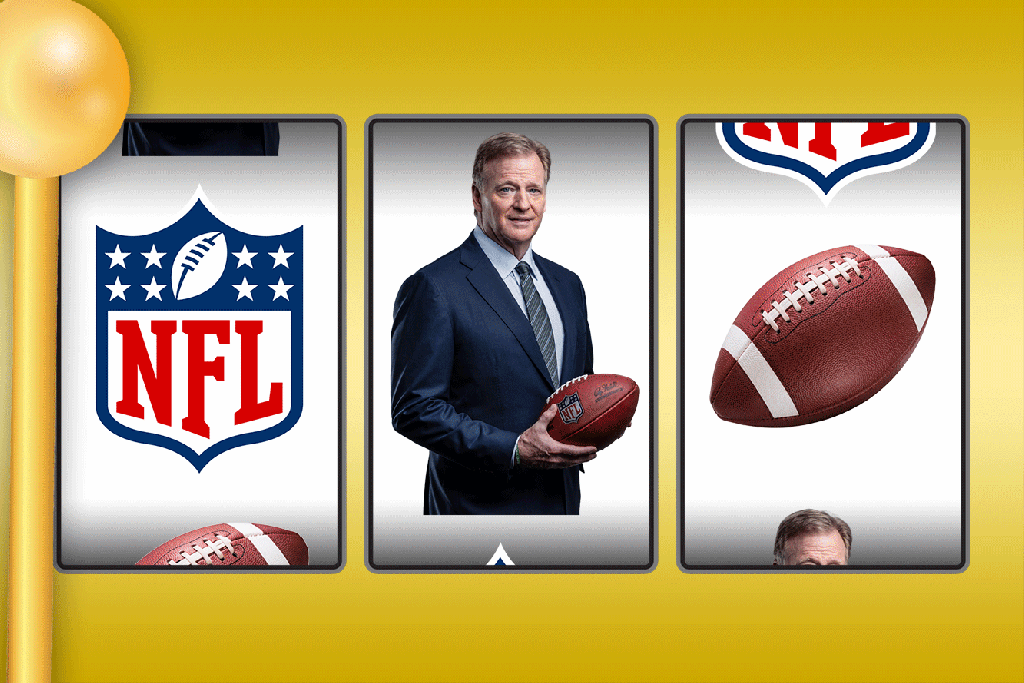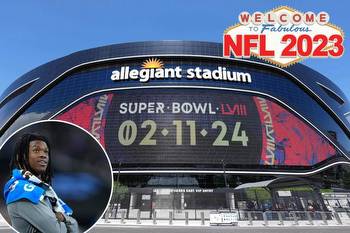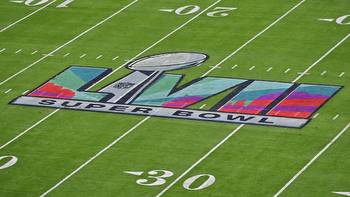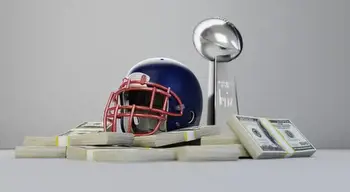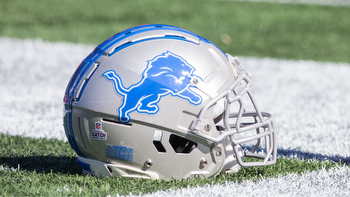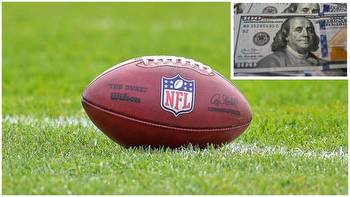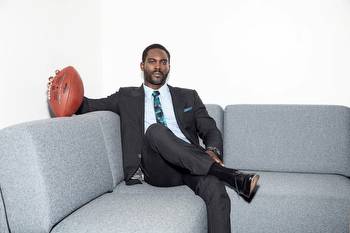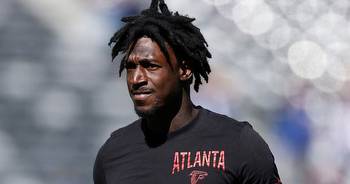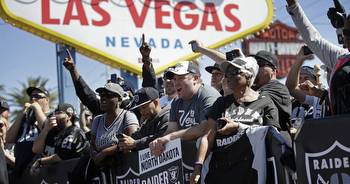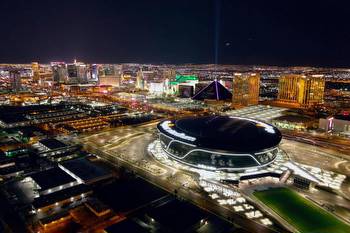What are the NFL’s gambling rules for the Super Bowl in Las Vegas?
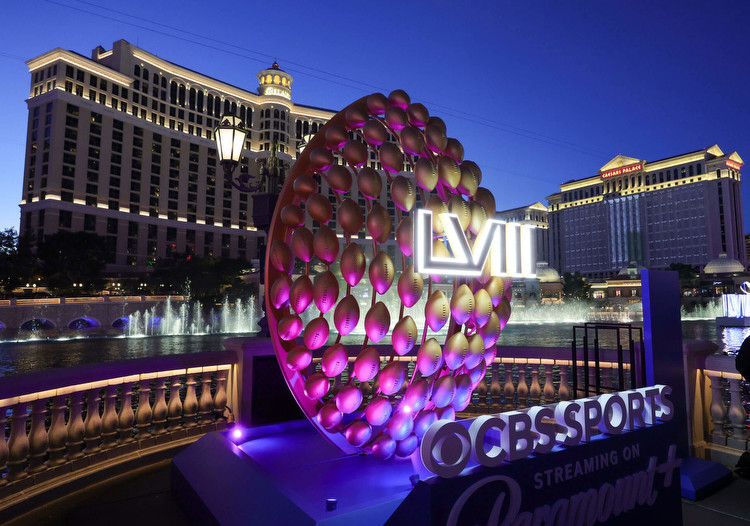
The NFL’s rules on gambling have generated widespread criticism and questions leading up to the Super Bowl in Las Vegas, as the league aims to balance its sportsbook partnerships and policies preventing players from betting on games.
Gambling was a major topic of NFL commissioner Roger Goodell’s annual Super Bowl news conference Monday, when he said the “integrity of the league” was the top priority.
“We want to make sure that when people are watching NFL games, they know the action on the field is genuine and without any outside influence, ” Goodell said.
With the marquee sports event days away in the U.S. betting hub, it’s worth revisiting the NFL’s policies for its players and how the league’s stance has changed over time.
NFL rules on sports betting
The league has long maintained that players are not allowed to bet on NFL events. Its 2023 gambling policy states that players can never place, solicit or facilitate a bet — either directly or through a third party — on “any NFL game, practice, or other event, such as the Combine or Draft.”
Players are also not allowed to participate in anyone else’s NFL betting activities, such as asking someone to place an NFL-related bet on their behalf or allowing another person to use their account to place an NFL-related bet.
Additionally, players may not enter a sportsbook during the NFL season (from the Hall of Fame Game through the Super Bowl) “except to access an area outside of a sportsbook,” the rules state. For example, a player can pass through a sportsbook “where necessary” to get to a separate part of an entertainment, casino or hotel complex.
At the Super Bowl, the Kansas City Chiefs and San Francisco 49ers are both staying in Lake Las Vegas, about 25 miles east of the Strip.
Why the Chiefs and 49ers are staying in Lake Las Vegas, not on The Strip
The league’s rules are also particular about when and where players may gamble.
Players are prohibited from gambling in team or league facilities (such as practice facilities, stadiums and offices) or while traveling with their teams (such as on a team plane or in a team hotel) to participate in an NFL game or in-season team activity.
Can NFL players bet on other sports?
Players are allowed to bet on sports other than the NFL in states where betting is legal, subject to the NFL’s rules on entering a sportsbook and betting from the workplace.
For example, a player may not place a bet from an NFL facility even if the bet is not on an NFL game. Detroit Lions receiver Jameson Williams and Tennessee Titans offensive tackle Nicholas Petit-Frere were disciplined this season for violating the rule. They originally received six-game suspensions, but the league updated its gambling policy in September, reducing the penalty from six games to four.
Betting on non-NFL events in the workplace or while working now carries a two-game suspension for the first violation, six games for a second offense and at least one year for a third offense.
What are the gambling rules for the Super Bowl?
Members of the two Super Bowl teams, the Chiefs and 49ers, are prohibited from participating in any form of gambling, including casino games and betting on any sport.
Players on the other 30 teams may engage in “legal gambling” — but not on the NFL, and they cannot go in a sportsbook until the Super Bowl is over, the league said.
Jeff Miller, the NFL executive vice president of communications, public affairs and policy, said last week: “The rules are no different for the participating teams’ players and other personnel as they would be for any other game: When on business, there is no gambling, whether it be sports gambling or otherwise.
“And any player, coach, personnel, yours truly, who would be caught or identified gambling at a casino would be eligible for the disciplinary process, and that would be addressed in the normal course of discipline as we would any player or other personnel who there was evidence that was violating the rules around gambling.”
NFL’s disciplinary process for gambling violations
Violations of the NFL’s gambling policy are decided by Goodell or his designee on a case-by-case basis, according to the 2023 rules.
“Discipline may include, without limitation, a fine, suspension, termination of employment and/or banishment from the NFL for life,” the rules state.
Below are the baseline suspensions for violations of the gambling policy, “with possible upward or downward adjustments,” according to the rules, which note: “Nothing in this policy precludes the commissioner from imposing more discipline for other types of prohibited conduct.”
- Betting on NFL: Indefinite suspension, minimum of one year or minimum of two years if a player bets on an NFL game involving his team
- Actual or attempted game fixing: Permanent banishment from the NFL
- Inside information and tipping: Indefinite suspension, minimum of one year
- Third-party or proxy betting: Indefinite suspension, minimum of one year
- Betting (other than NFL) in the workplace or while working:
- First violation: Two-game suspension without pay
- Second violation: Six-game suspension without pay
- Third violation: Suspension without pay for at least one year
How has the NFL’s stance on gambling changed?
The Athletic’s Mike Jones explained in a recent article how the NFL’s complicated relationship with sports betting has evolved:
Since the legalization of sports gambling, the NFL has worked hard to walk a tightrope when it comes to partnering with companies such as Caesars, FanDuel and DraftKings and also ensuring that players avoid activities that would compromise the integrity of the game. The league has yet to release figures on how much revenue partnerships with gambling companies generate, but according to the American Gaming Association (AGA), the NFL brings in $2.3 billion per year in income because of those deals.
League officials long frowned upon betting on NFL games and worried that involvement would lead to player involvement and questions about the temptation to fix games. But once the Supreme Court in 2018 overturned the Professional and Amateur Sports Protection Act, they felt the need to evolve as well.
“The relationship that the league has with sports gambling changed for one specific reason, and that is because the world changed,” Miller said on the league’s efforts to promote responsible sports betting practices. “The Supreme Court overturned (the Professional and Amateur Sports Protection Act) back in 2018, five years and some odd months ago. As a result, we had to rethink how we engage with legalized sports gambling, and that’s what we’ve done. … And we’ll continue to look at and examine how we do that in the hopes that we can be the best we can to protect the integrity of the game in a world where the rules changed.”








